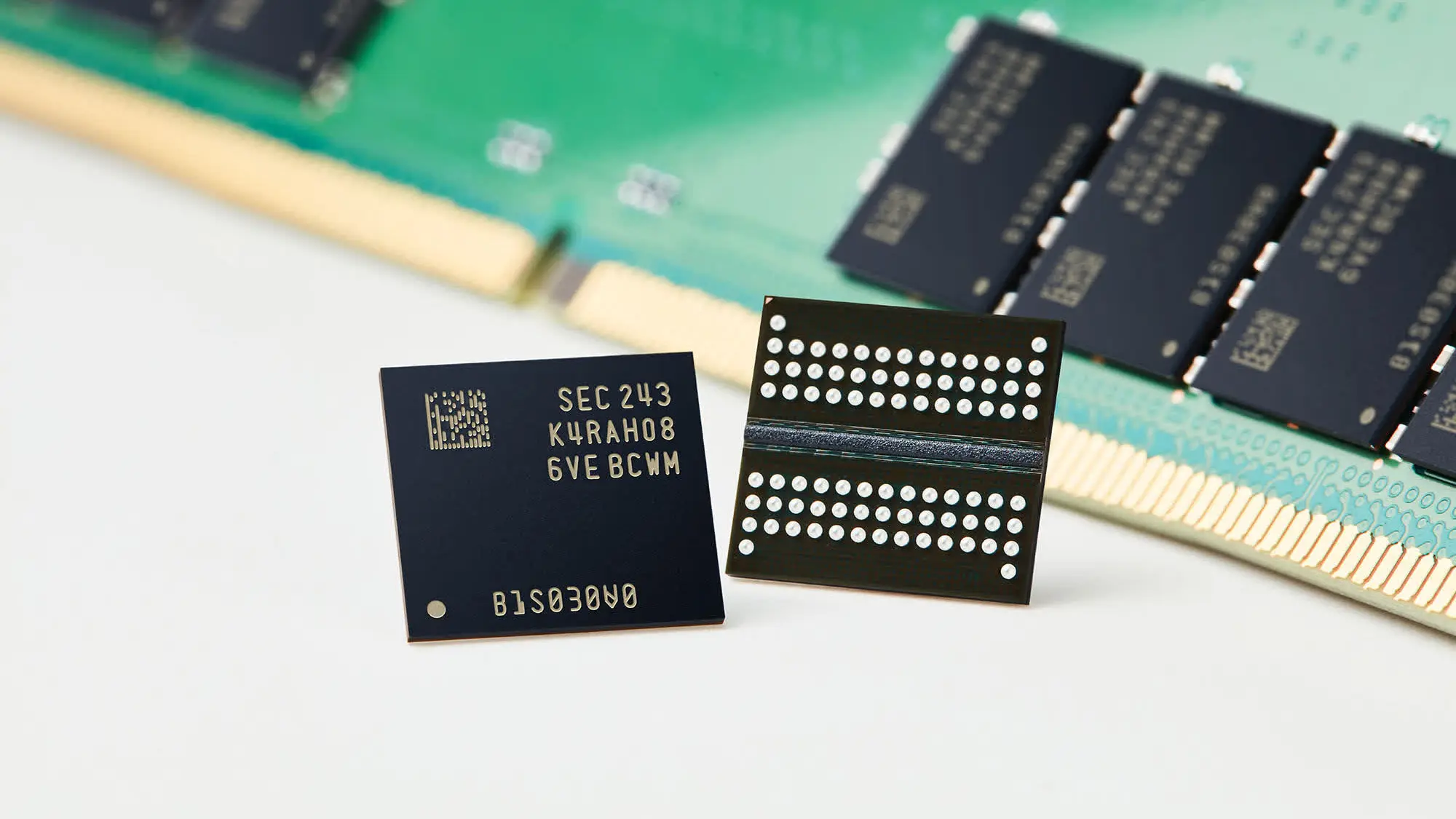News
Samsung, TSMC, and Intel Compete in the Race for 2nm Chips

Tech giants within the semiconductor division are striving to become the first to produce so-called 2 nm (nanometer) processor chips. The next generation of smartphones, data centers, and artificial intelligence (AI) systems will tend to power up with these chips. Experts among the industries anticipate that most likely TSMC will continue to rule the world in the semiconductor division. However, other prominent titans like Samsung Electronics and Intel see an opportunity to catch up with the next big development in this area.
If you look into it, for many years, semiconductor manufacturers have been working to create ever smaller devices. Rather than referring to a semiconductor’s actual physical size, words like “2 nanometer” and “3 nanometer” are now frequently used as shorthand for each successive generation of chips. Based upon the size of the transistor on the device, reduced energy usage and increased speed vary. A corporation with a technological advantage in the upcoming generation of sophisticated semiconductors would have a strong advantage over its competitors in an industry that generated sales of chips worth $500 billion globally last year.
Qualcomm Chooses TSMC over Samsung for Snapdragon 8 Gen 4 3nm N3E Production
Due to an increasing demand for the data center chips that underpin generative AI services, that is anticipated to expand even more. As per two sources with direct knowledge of the negotiations, TSMC, which controls the majority of the global processor industry, has already disclosed the process test findings for its N2 or 2 nanometer prototypes to several of its large clients, including Apple and Nvidia. And by the end of the year, Intel, the former leader in the industry, promises to start shifting its next generation of processors. While questions still surround the effectiveness of the US company’s products, that may put it back ahead of its Asian competitors.
Launching the mobile version first, TSMC usually targets Apple as its primary customer. The company has stated that the mass manufacturing of N2 chips will start in 2025. High-performance computer processors intended for larger power demands will follow, followed by versions for PCs. The iPhone 15 Pro and Pro Max, which debuted in September of this year, are the newest flagship smartphones from Apple, and they are the first mass-market handsets to use innovative 3 nm semiconductor technology.
Samsung’s 3nm and 4nm Chip Processes on Track for Late 2024 Mass Production
The transition from one generation or node of process technology to the next becomes more difficult as chips become thinner, increasing the risk of a mistake that might cause TSMC to lose its dominant position. Experts emphasize that mass manufacturing will not be happening for another two years and that teething issues are a normal aspect of the chip-making process. Samsung led the way in both the introduction of mass manufacturing of its 3nm or SF3 chips and the adoption of the revolutionary “Gate-All-Around” (GAA) transistor design.
Two individuals with knowledge of the matter claim that US chipmaker Qualcomm intends to include Samsung’s SF2 chip into its upcoming high-end smartphone CPUs. The Korean company maintains that it has enhanced its yield rates to 3 nanometers. However, Samsung claims that the company’s simplest 3nm chip yield rate is just 60%, significantly below customer expectations and probably going to decline even more when creating more complicated devices, such as Nvidia’s GPUs or Apple’s A17 Pro.
Statements from experts:
The fact that Samsung’s chip design and smartphone divisions were direct rivals of the potential buyers of the logic chips made in its foundry business was another factor that hurt the company, says Lee Jong-hwan, a professor of system semiconductor engineering at Sangmyung University in Seoul.
Chip design companies can receive free test production from Intel, the company that used to lead the industry, while it is marketing its generation 18A node at technology conferences. It may become the first shipmaker to switch to the next generation when the US corporation announces that it will start producing 18A in late 2024.
However, the CEO of TSMC, CC Wei, doesn’t seem to have faced October; he stated that the Taiwanese company’s internal evaluation of its most recent 3 nanometer version.
“Samsung tries to do these quantum leaps,” said Dylan Patel, chief analyst at research firm SemiAnalysis. “They can claim all they want, but they still have not released a proper 3-nanometer chip.”
Thanks to “Financial Times“
News
Samsung Prioritizes Faster Charging in 2024 Smartphones

The first quarter of 2024 is already over; during this interval, Samsung has introduced several Galaxy smartphones of particular belonging, such as the flagship Galaxy S24 series, the Galaxy A55 and Galaxy A35, the mid-range ones, the Galaxy A15 and Galaxy F15, the budgetable ones, and many more. But the fact is, after being the latest smartphones, they have a lack of ‘charging speed.’
Undoubtedly, Samsung is leading the tech industry with its top-notch features, design, and larger batteries, as compared to other Android manufacturers, but despite all this, it has a massive lack of charging speed. Samsung usually attaches larger batteries to its Galaxy smartphones to enhance the users’ non-stop-using experience. But a larger battery isn’t worth it unless it has a good charging speed.
On the other hand, Chinese manufacturers are equipping their smartphones with charging speeds north of 100W, whereas 45W is the maximum speed you can get on Galaxy smartphones. However, even 45W charging is quite rare among Galaxy phones. Samsung has launched most of the Galaxy devices in the last couple of years, including the flagship with support for 25W.
Here we are making things easy for you if you are looking to buy a Galaxy smartphone that debuted in 2024 with the support of 45W charging speed by mentioning a list of devices:
- Galaxy S24 Ultra
- Galaxy S24+
- Galaxy F55
- Galaxy M55
- Galaxy C55
The list is quite short, even considering that the Galaxy F55, M55, and C55 are just rebranded variants of the same smartphone for different regions. Now Samsung is setting up to launch its next-generation foldable devices, the Galaxy Z Fold 6 and Galaxy Z Flip 6, in July, but it is yet to be confirmed whether these devices will get a boost in charging speeds from 25W or not.
News
New Galaxy Phone In Existence: Samsung Galaxy M35 5G Spots On Geekbench

The Korean brand – Samsung has recently announced its two mid-range Galaxy smartphones – Galaxy A55 5G and Galaxy A35 5G. A new benchmark listing has a spot for Samsung’s affordable smartphone, Galaxy35 5G.
Samsung is now gearing up for its next affordable Galaxy smartphone, the M35 5G, as the reports are unvunveilhey have found a new benchmark listing for Samsung the Galaxy M35 5G.
The smartphone has been spotted with the model number as an identification code – SM-M356B on the Geekbench 6.2.2 database. Not only this, but it also confirmed the presence of 6GB of RAM and Android 14 OS. The chipset also came to know which is the latest Exynos 1380.
The codename for the motherboard is also mentioned, which is ‘s5e8835.’ The reports say that it has scored 656 and 1967 points in performance scores on the benchmarking platform. Exynos 1380 is the latest chipset of the Korean brand, which is a 5 nm processor. It consists of 4 Cortex A78 cores, which clock at 2.4GHz, and 4 Cortex A55 cores, which clock at 2.0GHz. It is coupled with a Mali g68 MP5 GPU. It also has an AI Engine.
This also offers connectivity options, which include the latest Bluetooth version 5.3 and Wi-Fi 802.11 ax with three bands. It supports a camera resolution of at least 200MP for capturing images, and for video recording, there is support for up to 30fps 4K recording. The storage supported is UFS v3.1, and RAM will be of the LPDDR4x/5 type.
Samsung has recently debuted its two smartphones, Galaxy A55, and Galaxy A35; the Galaxy A35 5G smartphone is powered by Exynos 1380 chipset. From this perspective, Galaxy M35 5G could be a variant of Galaxy A35.
At the moment, no specs and features of the device have been revealed or leaked. Still, since Galaxy M series smartphones usually have a bit higher battery power of at least 6000mAh, the forthcoming Galaxy M35 5G smartphone also arrives with the same battery power.
Firmware
Verizon rolls out the March 2024 security patch update for the Galaxy Z Fold 3 and Galaxy Z Flip 3 devices

Verizon has rolled out the March 2024 security patch update for the Galaxy Z Fold 3 and Galaxy Z Flip 3 devices. Earlier, these devices had received the same update outside the US, but now they are gradually expanding to the US.
The Galaxy Z Fold 3 and Galaxy Z Flip 3 are spotted getting new updates with the firmware version numbers F926USQS5HXBD and F711USQS6HXBD, respectively. It is worth noticing the update is currently available for the devices locked to Verizon, but it will soon be available on more carriers.
For your information, the latest update for Galaxy Z Fold 3 and Galaxy Z Flip 3 doesn’t bring any significant changes, but as it is the latest security patch, it will provide some internal fixes to maintain the security of the devices.
If you are getting some other issues from the last update, you should also update the device to the latest update, as it may also address some issues. Along with the update, other improvements may also be made to enhance the overall performance of the devices.
Suppose you use the Galaxy Z Fold 3 or Flip 3 device in the US. In that case, you can update the device to the latest version by simply going to the system settings and then to the software update. If you haven’t received the update, you should wait for some time, as it may arrive in the next few days.












